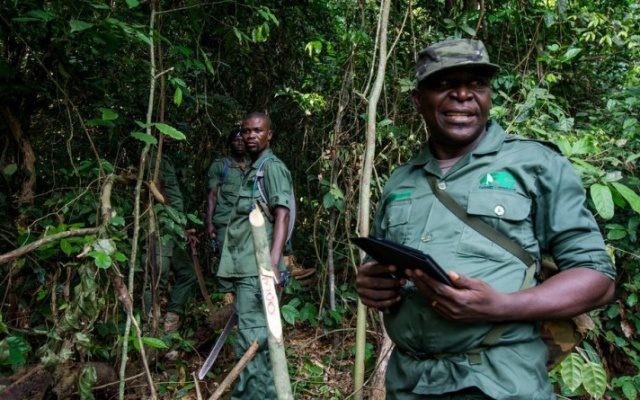The World Bank’s Forest Carbon Partnership Facility (FCPF) has released US$4.9million to Ghana, as the first of four payments for reducing 972,456 tonnes of carbon emissions for the first monitoring period of June to December 2019.
With this, Ghana becomes the second country in Africa after Mozambique to receive payments from a World Bank trust fund for reducing emissions from deforestation and forest degradation, commonly known as REDD+.
In a statement announcing the payment, the World Bank Country Director for Ghana, Liberia, and Sierra Leone, Pierre Laporte, said the country’s Emission Reductions Payment Agreement (ERPA) with the World Bank demonstrates the potential for leveraging results-based payments for carbon credits.
“Subject to showing results from actions taken to reduce deforestation, Ghana is eligible to receive up to US$50million for 10 million tonnes of CO2 emissions reduced by the end of 2024,” he added.
These actions are within a six-million-hectare stretch of the West Africa Guinean Forest, where biodiversity and forests are under pressure from cocoa farming, unsustainable harvesting and small-scale mining. Ghana is one of 15 countries that have signed ERPAs with the Bretton Woods institution.
Commenting on the payment, Minister for Lands and Natural Resources, Samuel Abu Jinapor, said the years of dialogue, consultations and negotiations with local communities, traditional authorities, government agencies, the private sector, civil society organisations and non-governmental organisation have paid off.
“This emission reductions payment will further promote confidence in Ghana’s REDD+ process for action to reduce deforestation and forest degradation while empowering local community livelihoods. The road to global 1.5 degrees cannot be achieved without healthy standing forests, and Ghana is committed to making it possible,” he said.
While cocoa drives the local economy, it has also been identified as one of the main causes of deforestation and forest degradation.
It is to this end that stakeholders are working to help some 140,000 Ghanaian farmers increase cocoa production using climate-smart agroforestry approaches, rather than slash-and-burn land-clearing techniques that decimate forests. It is noted that more sustainable cocoa farming helps avoid the expansion of cocoa farms into forest lands, and secures more predictable income streams for communities.
Ghana’s Cocoa Board, regulator of the domestic cocoa industry, is participating in the REDD+ process; as are some of the most important cocoa and chocolate companies in the world including World Cocoa Foundation members like Mondelēz International, Olam, Touton and others.
Their combined actions are said to be not only helping bring change to the cocoa sector, but also helping Ghana meet its national emissions reduction commitments under the Paris Agreement.
This level of collaboration is also reflected in the benefit-sharing plan underpinning Ghana’s ERPA with the World Bank.
The Forest Carbon Partnership Facility (FCPF) is a global partnership of governments, businesses, civil society and indigenous peoples’ organisations focused on reducing emissions from deforestation and forest degradation, forest carbon stock conservation, the sustainable management of forests, and the enhancement of forest carbon stocks in developing countries; activities commonly referred to as REDD+.
Launched in 2008, the FCPF has worked with 47 developing countries across Africa, Asia, Latin America and the Caribbean, along with 17 donors which have made contributions and commitments totalling US$1.3billion.










